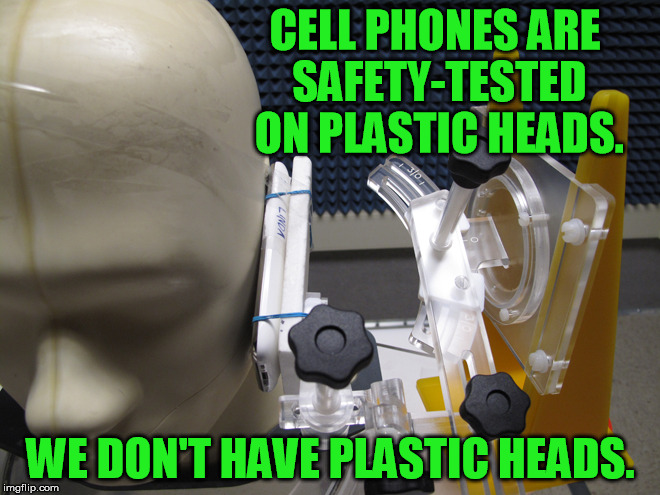Dr. Mercola on Illegal Radiation Levels From Cellphones, Inadequate Safety Testing, and Why We Should Be Concerned About 5G
 By B.N. Frank
By B.N. Frank
Last month, the Chicago Tribune reported that 11 popular smartphones exceeded federal radiation (RF) safety levels. Within days, a law firm started a class action lawsuit because of this (see 1, 2).
Federal safety levels were established over 20 years ago and are woefully inadequate. Plenty of research has determined wireless radiation exposure is harmful. Regardless, The Federal Communications Commission (FCC) refuses to acknowledge this or update safety levels.
Of course, it’s been reported by many sources that the FCC has a long history being a “captured agency” that protects the telecom industry instead of the public (see 1, 2, 3, 4). The “Race for 5G” has made this so much worse – and scarier. The Telecom Industry has still provided NO scientific evidence that 5G is safe. People and their pets are already getting sick where it’s been installed (see 1, 2, 3). Despite this, the FCC is still forcing widespread installation.
Thanks to Dr. Mercola for his extensive article about these topics including how “Safety Standards Leave Lots of Wiggle Room” and don’t apply to real-world exposure.
How could these cellphones exceed the legal limit by such a significant margin? Part of the problem, the Tribune explains, is that manufacturers need only get a passing grade for a single cellphone in order to allow them to put millions on the market. They’re also allowed to select their own testing lab, which could give rise to discrepancies.
As noted by the Tribune, Apple disputed the results, saying the lab used by the Tribune “had not tested the phones the same way they do,” although the company did not specify what the problem was.
Motorola also disputed the results obtained for its Moto e5 Play, saying the Tribune’s test might not have triggered the phone’s proximity sensors — sensors that are supposed to detect when the device is in close proximity to your body and lower the phone’s power output accordingly. The Tribune writes:
Motorola … would not answer questions about its power sensors. ‘Our power management techniques and expertise provide Motorola with a significant competitive advantage in the marketplace, and are therefore highly confidential,’ the company’s statement said.
Declare Your Independence!
Profit outside the rigged system! Protect yourself from tyranny and economic collapse. Learn to live free and spread peace!Counter Markets Newsletter - Trends & Strategies for Maximum Freedom
‘The Chicago Tribune’s third-party lab was not privy to the proprietary techniques from Motorola necessary to elicit accurate results’ … When the Tribune asked Motorola to explain how it tests its phones, the company declined. It also would not share its lab reports.
While the Tribune’s lab had conducted the testing according to FCC standards, the feedback from Motorola led the Tribune to retest the Apple and Motorola phones using a modified test “aimed at activating sensors that would reduce power.”
And, while the modified testing did allow some cellphone models to pass — suggesting proximity sensors in some phones may not work properly under certain conditions — the iPhone 7 still failed to meet the FCC standard. The Tribune writes:
When informed of the new results, Apple officials declined to be interviewed and requested the Tribune put its questions in writing. The newspaper did, submitting three dozen, but Apple did not answer any of them.
Activist Post Daily Newsletter
Subscription is FREE and CONFIDENTIAL
Free Report: How To Survive The Job Automation Apocalypse with subscription



